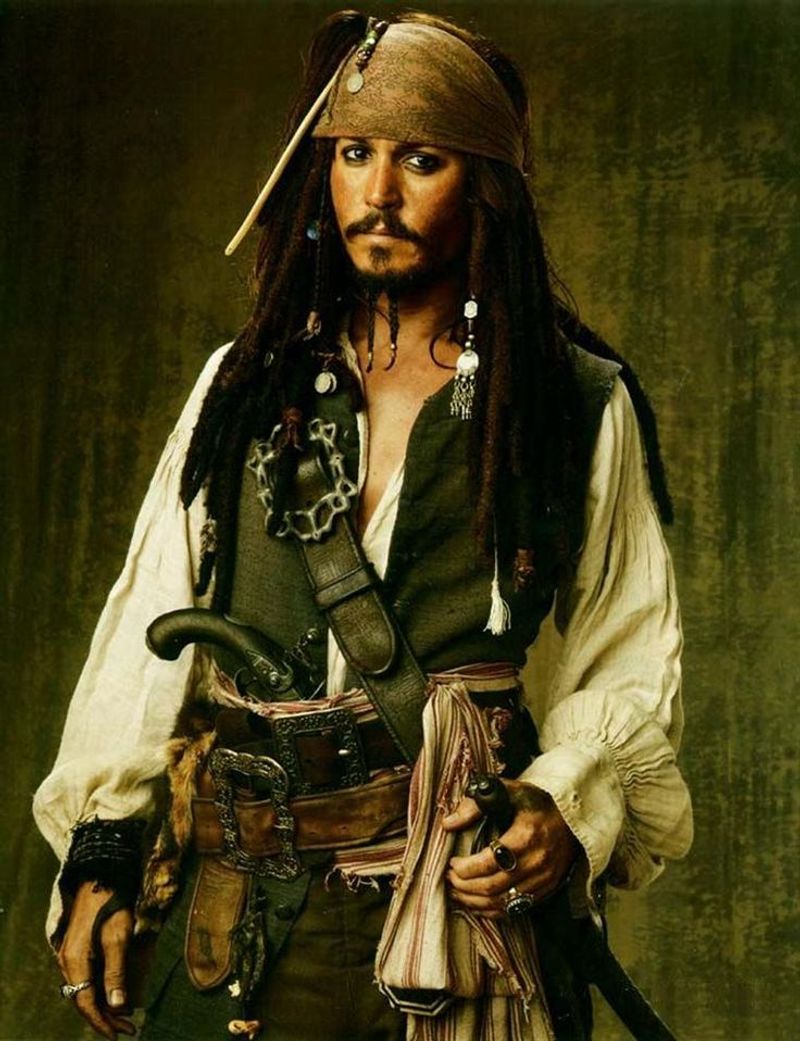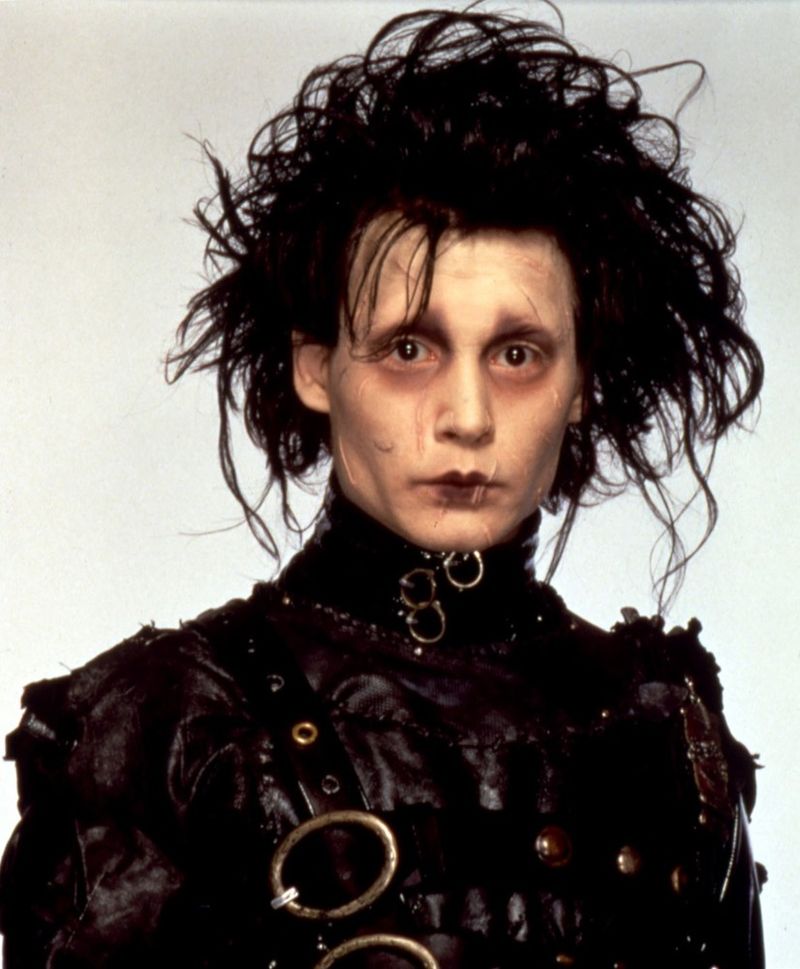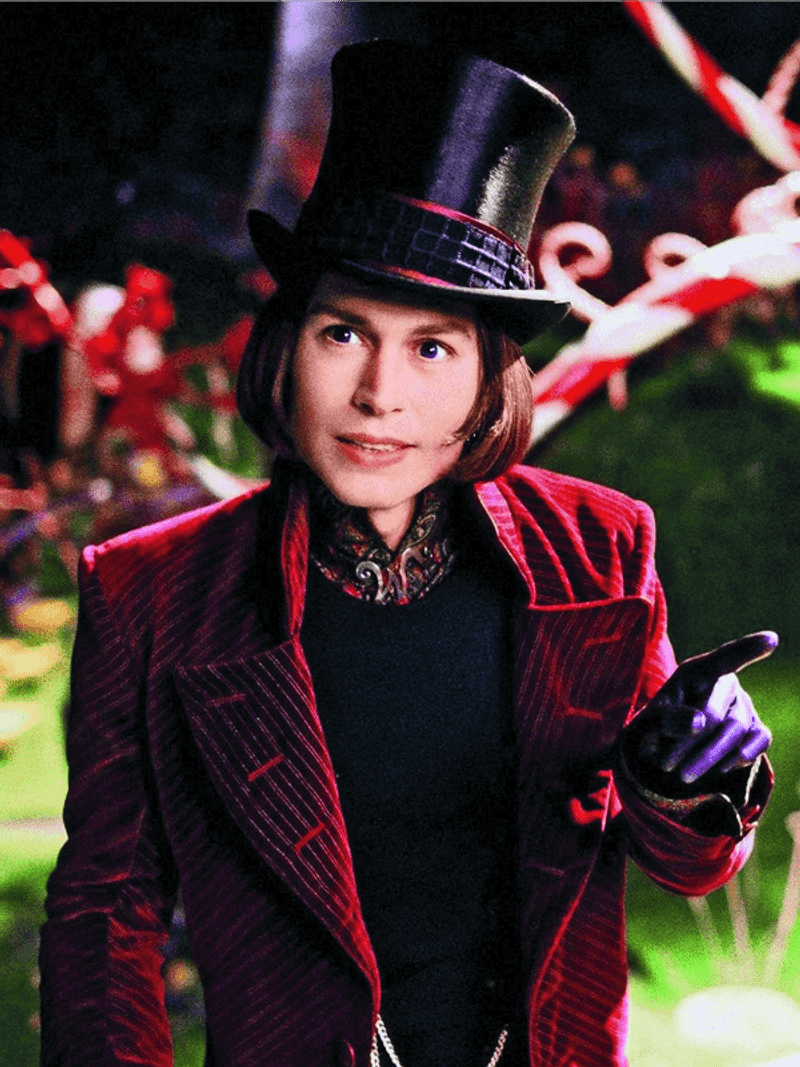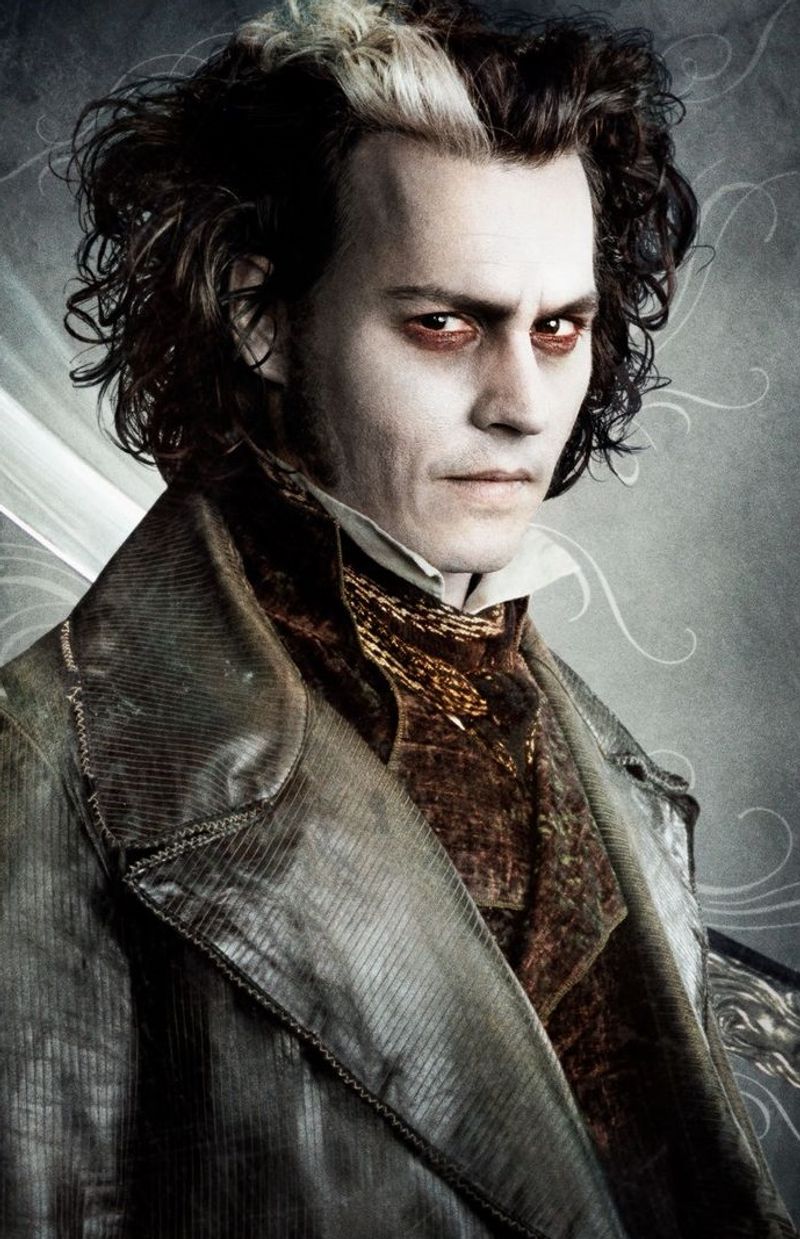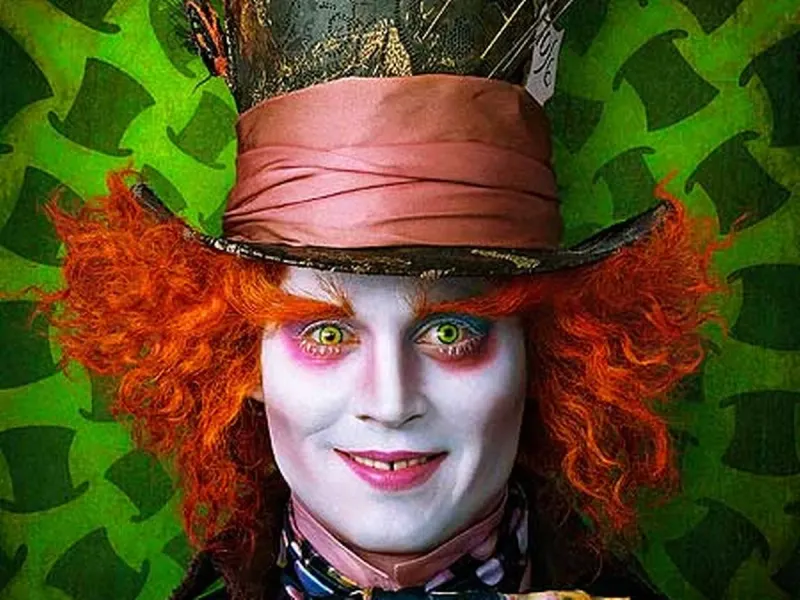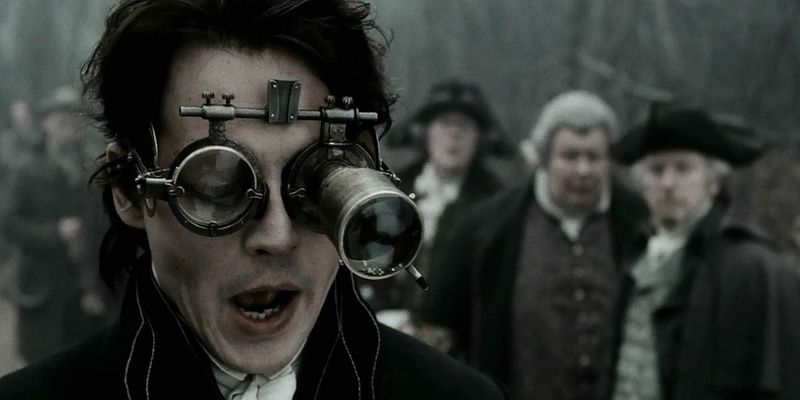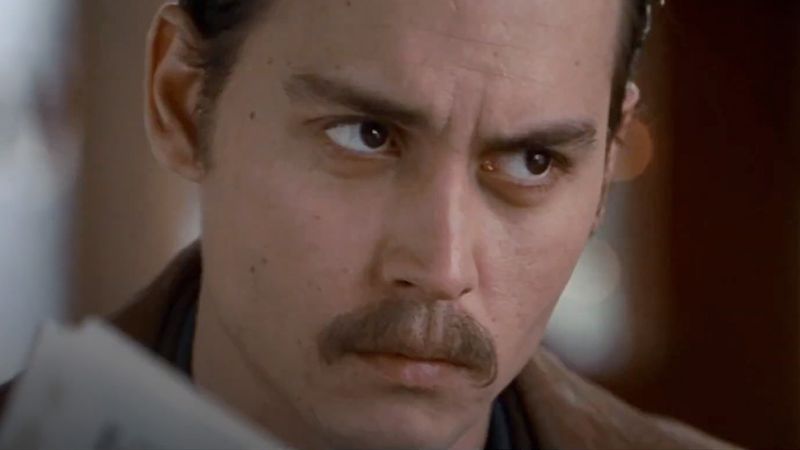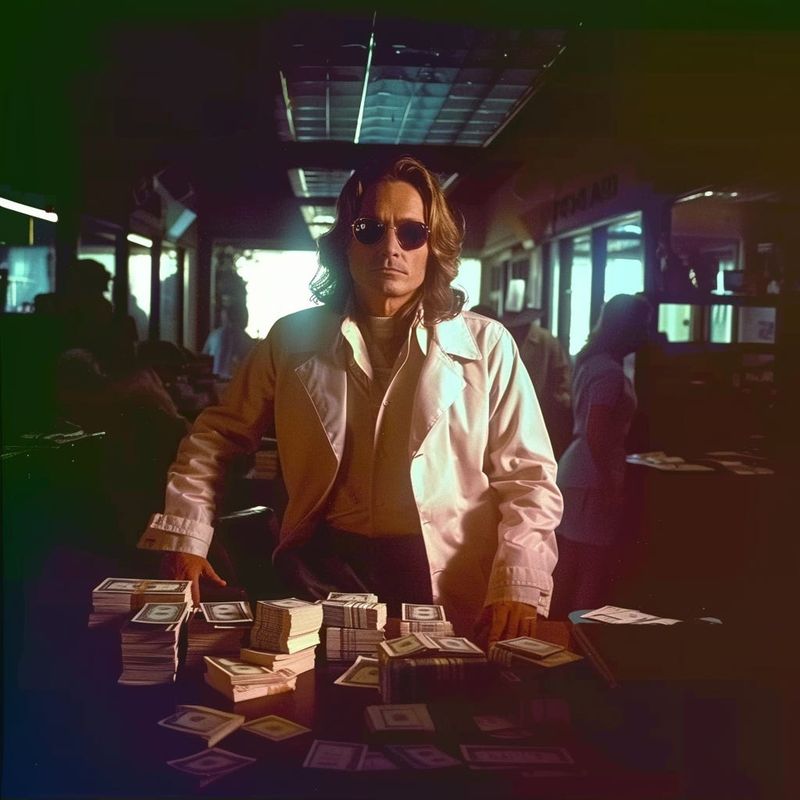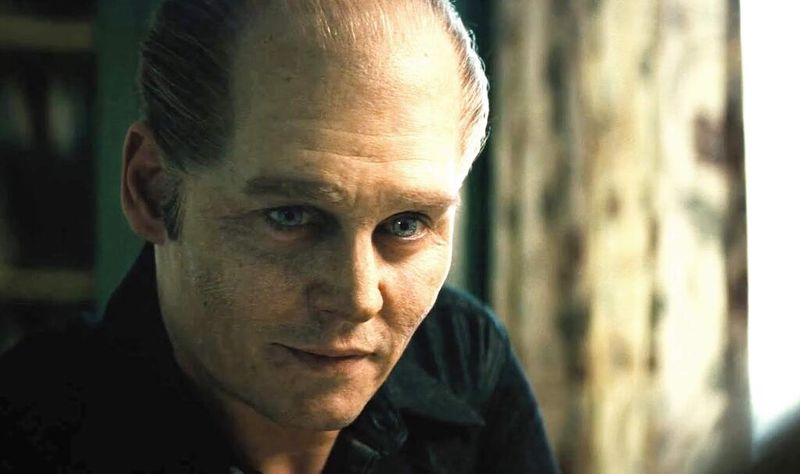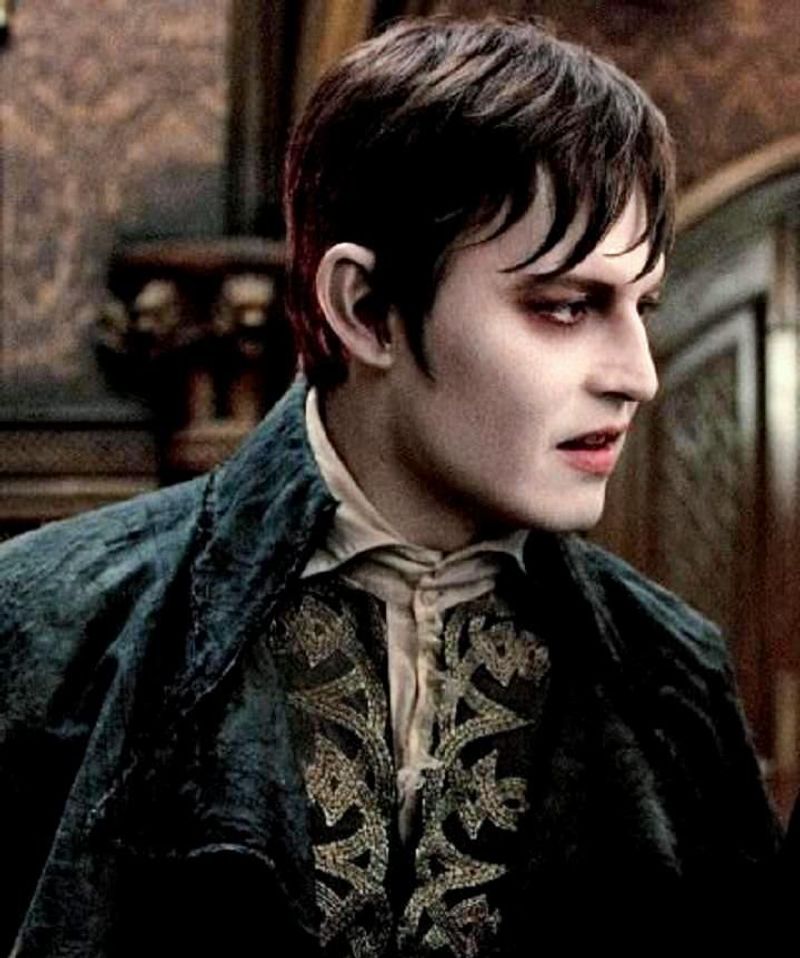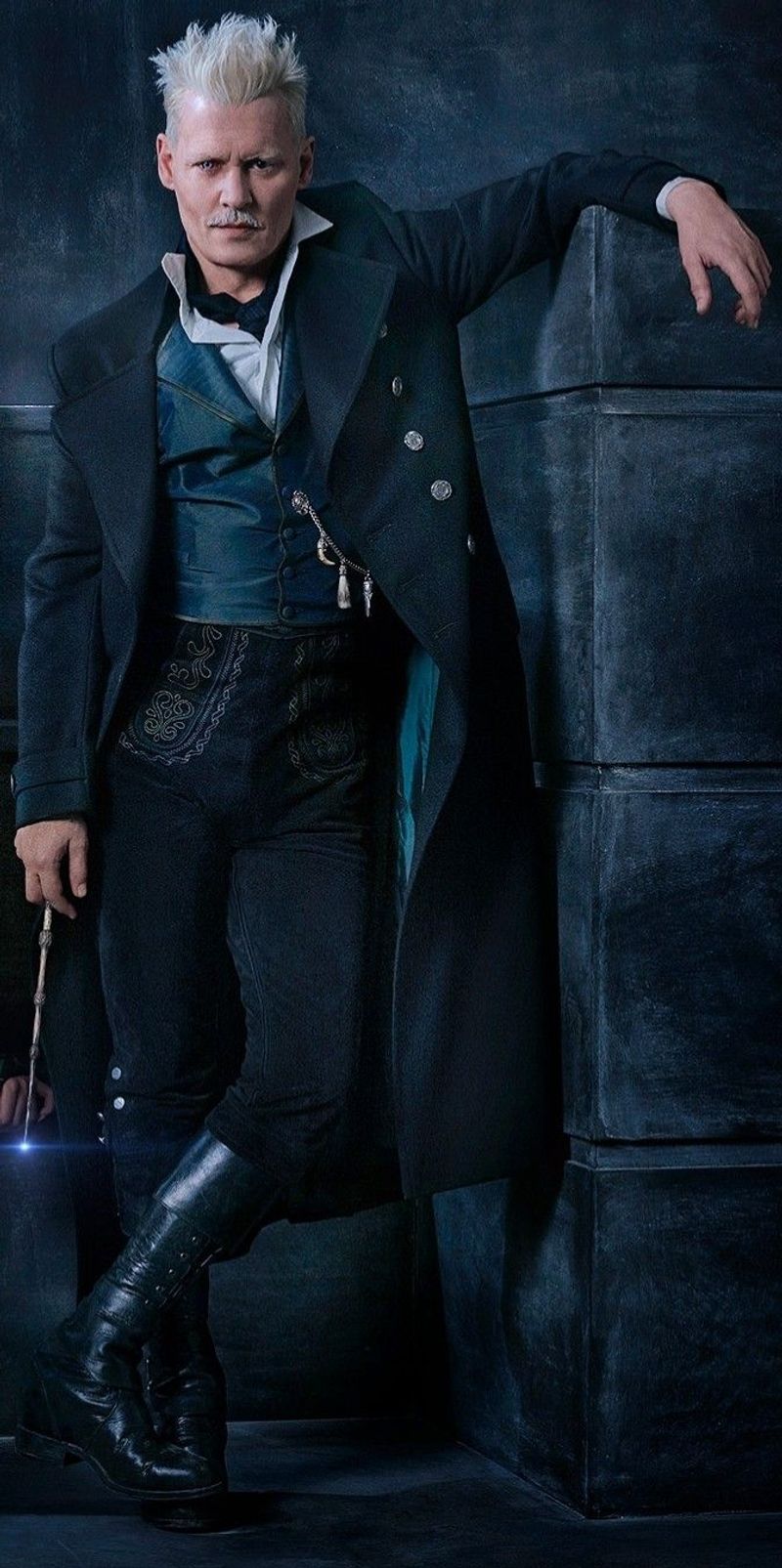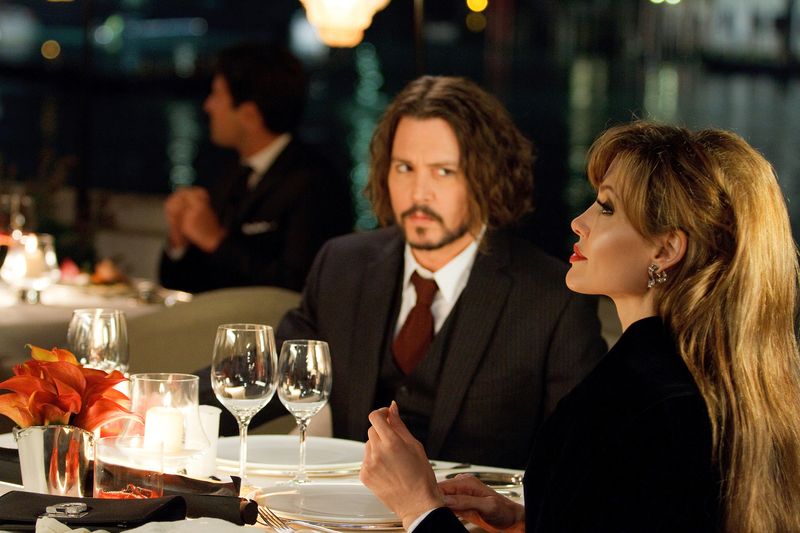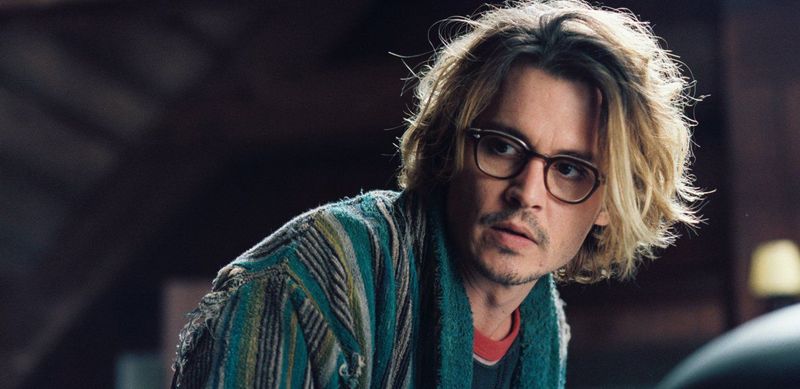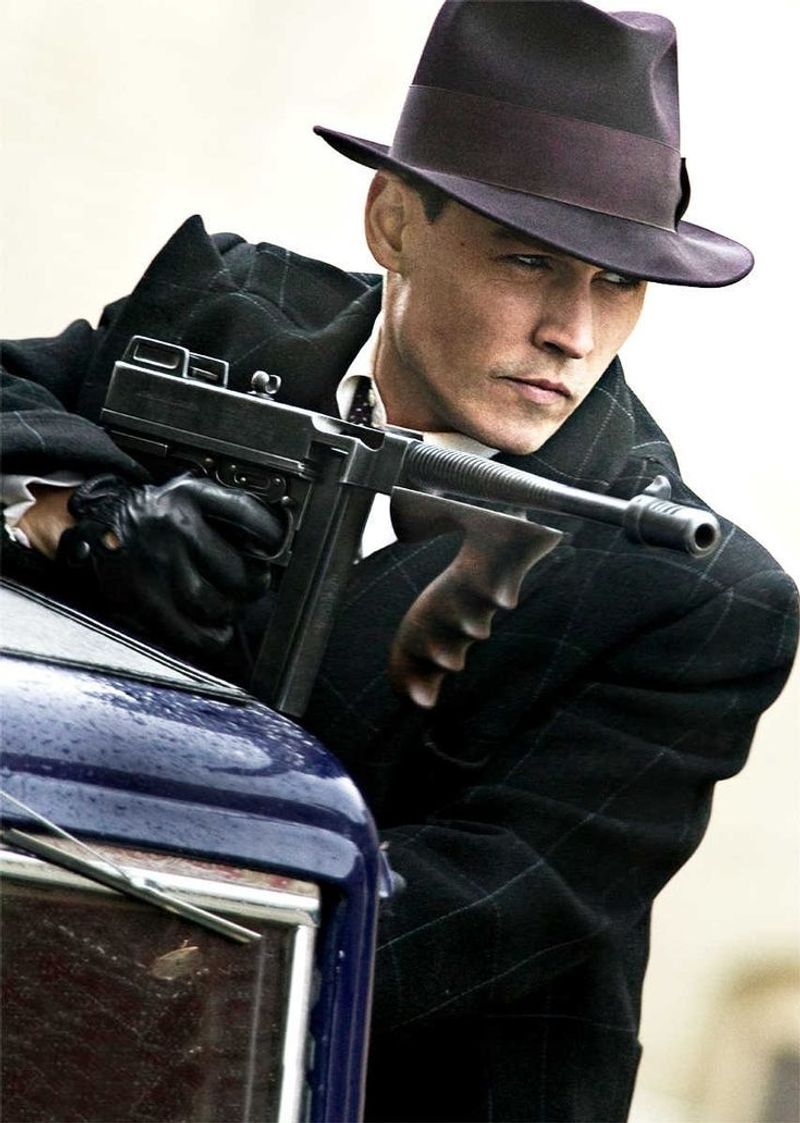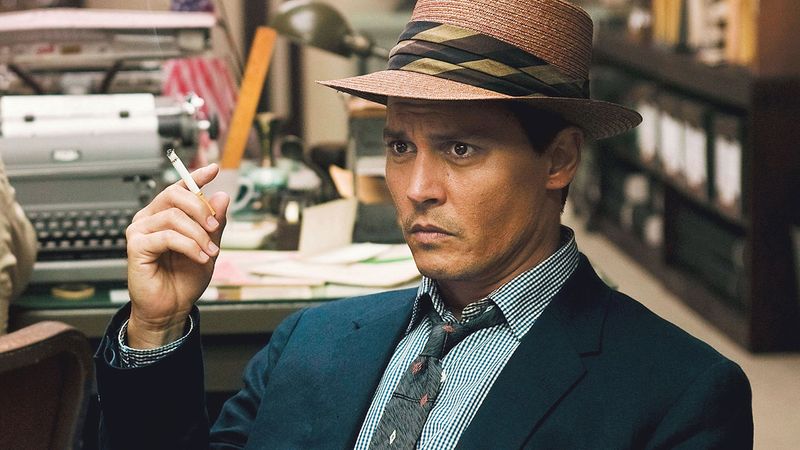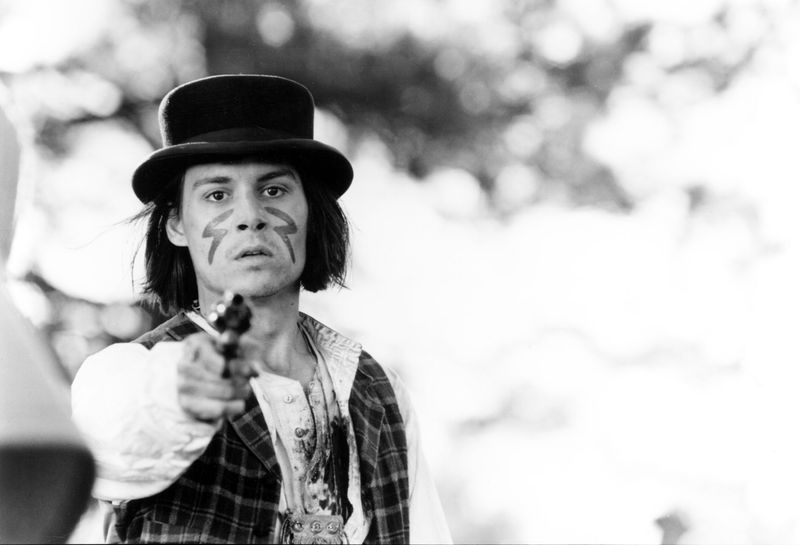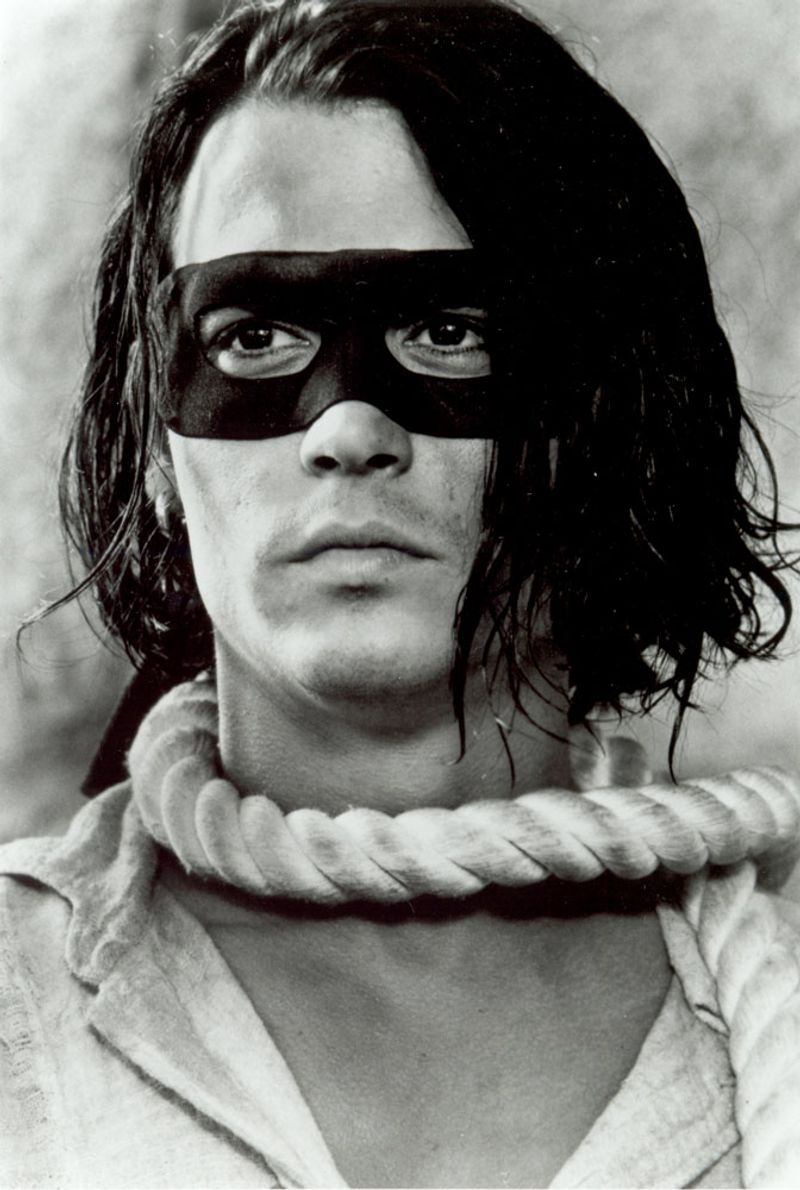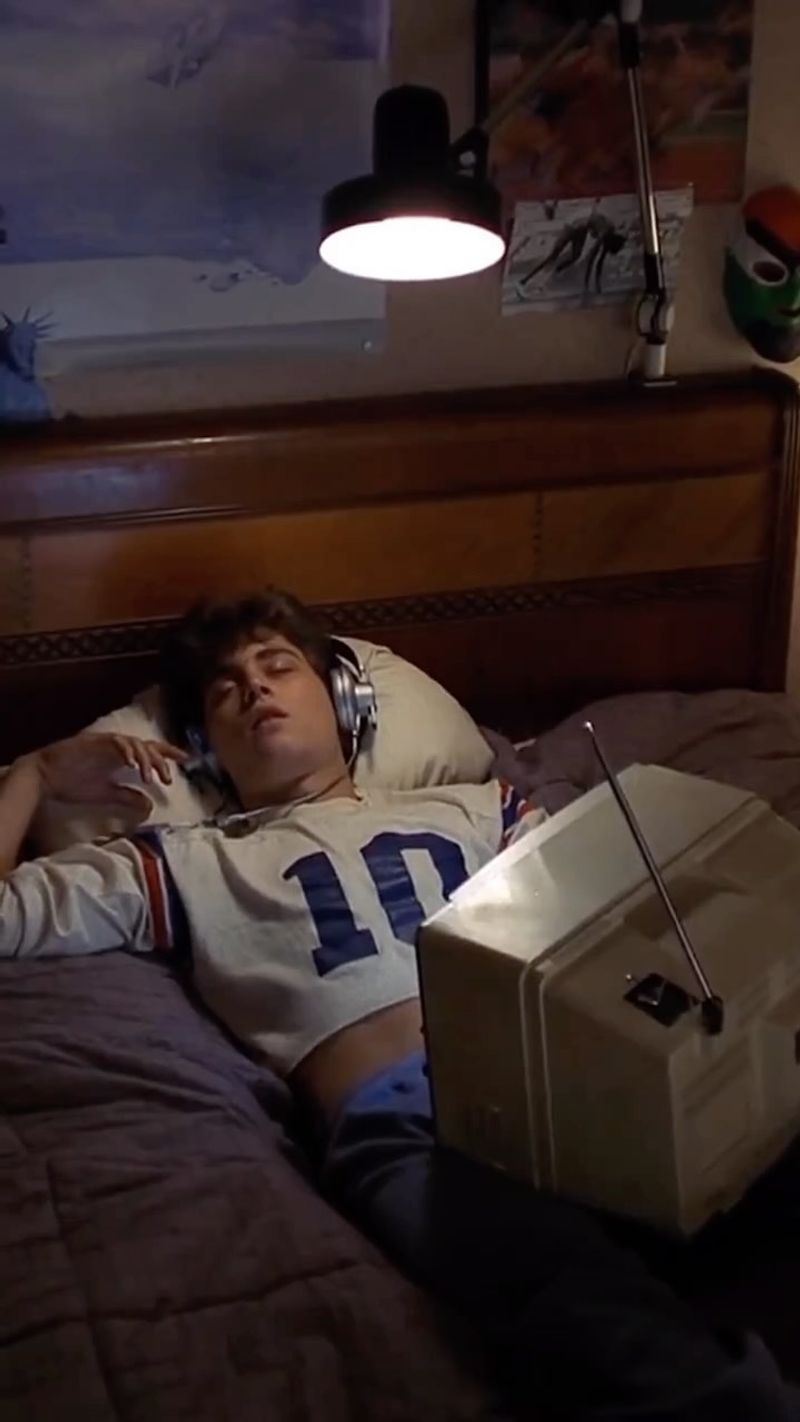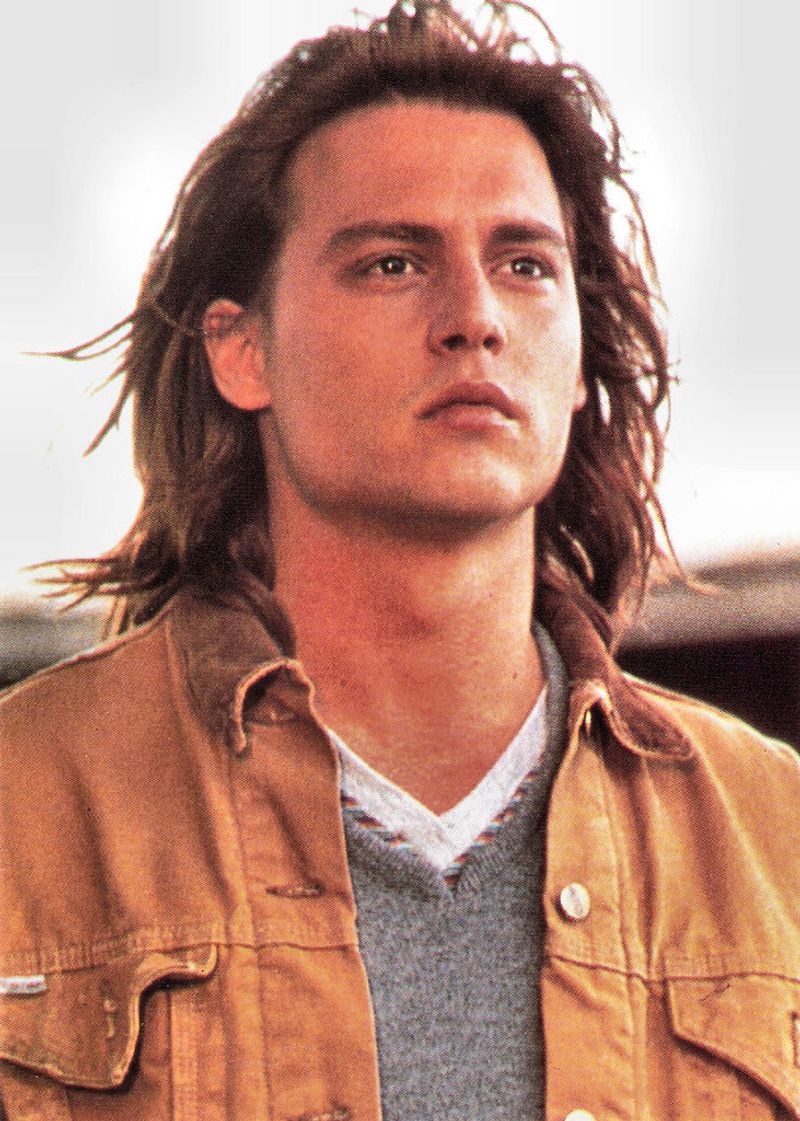Johnny Depp has transformed himself countless times throughout his acting career, creating characters that stick with us long after the credits roll. His ability to disappear into roles, often unrecognizable beneath elaborate makeup and distinctive mannerisms, has made him one of Hollywood’s most versatile performers. From swashbuckling pirates to gentle outcasts, each character showcases his remarkable range and commitment to bringing unique personalities to life.
1. Captain Jack Sparrow
Gold teeth gleaming and eyeliner smudged, Captain Jack Sparrow stumbles and schemes his way through the Pirates of the Caribbean franchise with unforgettable flair. Depp based the character partly on Keith Richards and Pepé Le Pew, creating a pirate unlike any seen before.
His slurred speech and dramatic hand gestures became instantly iconic. The role earned Depp his first Academy Award nomination and transformed him into a global superstar.
What makes Jack truly special is the perfect balance of comedy and cunning—he’s simultaneously the cleverest and most ridiculous person in any room.
2. Edward Scissorhands
Pale-faced with wild black hair and lethal blades for fingers, Edward embodies beautiful tragedy in Tim Burton’s gothic fairy tale. Created but left unfinished by an inventor who died too soon, Edward navigates suburban America with childlike wonder and perpetual danger.
Depp speaks barely 100 words throughout the film, relying instead on expressive eyes and gentle movements to convey Edward’s longing for connection. The character represents the ultimate outsider—someone whose very design prevents him from touching what he loves without destroying it.
This haunting performance established Depp’s willingness to disappear completely into unusual characters.
3. Willy Wonka
Sporting a plum velvet coat and bob haircut, Depp’s Willy Wonka reimagined Roald Dahl’s famous chocolatier with unsettling eccentricity. His awkward social skills and flashback-induced trauma created a character simultaneously whimsical and deeply damaged.
Unlike Gene Wilder’s warm interpretation, Depp’s Wonka maintains uncomfortable distance from others. His factory becomes both playground and prison—a reflection of his own psychological isolation.
Depp reportedly drew inspiration from children’s TV hosts whose excessive enthusiasm masks something stranger beneath. The performance divides audiences to this day, with some finding it brilliantly bizarre while others prefer the more approachable classic version.
4. Sweeney Todd
With a shock of white in his black hair and vengeance burning in his eyes, Depp brought the legendary demon barber to singing, slashing life. His Todd is a man transformed by injustice into a monster, methodically slitting throats while dreaming of reuniting with his lost family.
Depp’s surprisingly strong singing voice carries the emotional weight of Stephen Sondheim’s complex musical. The character’s darkness represented new territory for the actor, who embraced Todd’s murderous intensity without losing the humanity beneath.
His chemistry with Helena Bonham Carter created one of cinema’s most disturbing partnerships—a pair bound together by trauma and terrible purpose.
5. The Mad Hatter
Flame-haired and gap-toothed, Depp’s Tarrant Hightopp shifts between childlike glee and haunted melancholy at the drop of a hat—literally. His erratic behavior stems from mercury poisoning (historically common among hatters) and trauma from the Red Queen’s reign.
Depp crafted a distinctive visual appearance with orange hair, mismatched eyes, and gap teeth. His Hatter speaks in various accents, most notably slipping into a Scottish brogue when angry.
Beyond the expected madness, Depp brought surprising emotional depth to the role, particularly when revealing the Hatter’s past suffering. The character became central to Tim Burton’s reimagining of Wonderland.
6. Ichabod Crane
Armed with scientific gadgets and plagued by squeamish reactions to blood, Depp’s Ichabod Crane investigates decapitations with equal parts determination and terror. Unlike Washington Irving’s gangly schoolteacher, this reimagined Crane is a police constable with progressive forensic methods.
Depp plays him as a man caught between reason and superstition. His frequent fainting spells and nervous mannerisms provide comic relief amid the gothic horror.
The performance balances vulnerability with intellectual arrogance. Childhood trauma involving his mother’s death shapes Crane’s character, giving emotional weight to his journey through the supernatural events of Sleepy Hollow.
7. Raoul Duke
Cigarette holder clenched between his teeth and aviator sunglasses hiding drug-dilated pupils, Depp’s Raoul Duke careens through Las Vegas in a hallucinatory haze. Based on journalist Hunter S. Thompson, the character embodies the death of 1960s counterculture idealism.
Depp lived with Thompson to prepare for the role, adopting his mannerisms, distinctive voice, and even wearing his actual clothes during filming. The dedication shows in every twitchy movement and paranoid observation.
Beyond the drug-fueled antics, Depp captures the sharp intelligence and disillusionment beneath Duke’s chemical experimentation. The film initially bombed but has since become a defining cult classic of Depp’s career.
8. Donnie Brasco
Undercover FBI agent Joseph Pistone infiltrates the mafia under the alias “Donnie Brasco,” gradually blurring the line between his real identity and criminal persona. Depp portrays this dangerous psychological transformation with subtle shifts in posture, speech, and confidence.
Unlike his more flamboyant roles, this character showcases Depp’s ability to convey internal conflict through restraint. His growing attachment to father-figure mobster Lefty (Al Pacino) creates genuine moral complexity.
Based on a true story, the performance stands out in Depp’s filmography for its gritty realism and exploration of divided loyalty. The character’s famous explanation of the phrase “forget about it” remains a highlight of 90s cinema.
9. George Jung
Starting as an ambitious beach bum and ending as a broken prisoner, Depp traces cocaine smuggler George Jung’s rise and fall with remarkable emotional range. Based on a real-life drug trafficker who helped establish the American cocaine market in the 1970s, the character embodies the corrupting influence of easy money.
Depp ages convincingly throughout the film, from carefree youth to hardened criminal to defeated middle age. His narration carries the story’s cautionary message without becoming preachy.
The performance resonates because Jung remains sympathetic despite his crimes. Depp captures both the charisma that made Jung successful and the fundamental weakness that led to his downfall.
10. James “Whitey” Bulger
Receding hairline, ice-blue contact lenses, and dead-eyed stare transform Depp into one of Boston’s most notorious gangsters. His Whitey Bulger kills casually while maintaining a twisted code of loyalty to his South Boston neighborhood.
Depp’s performance is chilling in its restraint—violence erupts suddenly from beneath a controlled exterior. Small gestures like adjusting his collar or staring silently communicate more menace than shouting ever could.
The makeup application took three hours daily, but the physical transformation only enhances Depp’s psychological portrayal. He captures Bulger’s paradoxical nature: a man capable of tucking his son into bed lovingly before heading out to murder associates.
11. Victor Van Dort
Nervously practicing his wedding vows in a moonlit forest, Victor accidentally marries a corpse instead of his living fiancée. Depp’s vocal performance captures both Victor’s timidity and his growing courage through subtle shifts in confidence and pitch.
Though we only hear his voice, Victor’s personality shines through the stop-motion animation. His passion for piano playing reveals his sensitive nature, while his dedication to both Emily (the corpse bride) and Victoria (his living fiancée) demonstrates his fundamental decency.
The character represents a more understated Depp performance, proving he doesn’t need elaborate costumes or makeup to create a memorable role. Victor’s journey from fearful to brave forms the emotional core of the film.
12. Barnabas Collins
Awakening after two centuries entombed, vampire Barnabas Collins navigates the psychedelic 1970s with aristocratic manners and bloodthirsty urges. Depp plays him as a fish out of water—horrified by modern technology yet adapting his old-world charm to new circumstances.
His pale makeup, long fingernails, and precise diction create a character simultaneously frightening and funny. Barnabas kills without remorse yet remains oddly sympathetic in his devotion to family legacy.
The performance balances camp with genuine emotion. Depp’s comedic timing shines in scenes where Barnabas misinterprets modern customs, while his chemistry with Eva Green creates a compelling centuries-spanning romance.
13. Gellert Grindelwald
Mismatched eyes—one black, one pale blue—mark Grindelwald as magically and morally corrupted in the Wizarding World. Depp portrays the dark wizard with quiet intensity rather than manic energy, making his extremist ideology all the more disturbing.
His platinum blond hair and distinctive mustache create a striking appearance, while his soft-spoken delivery masks genocidal ambitions. Unlike the raving villain archetype, Grindelwald seduces followers through charismatic persuasion.
Controversy surrounded Depp’s casting due to personal allegations, ultimately leading to his replacement in later films. Despite limited screen time, he established Grindelwald as a different kind of threat than Voldemort—a seductive demagogue rather than an outright monster.
14. Frank Tupelo
Wisconsin math teacher Frank Tupelo gets mistaken for a dangerous criminal while vacationing in Europe, launching him into an unexpected adventure. Unlike Depp’s eccentric characters, Frank is deliberately ordinary—an average American tourist with a crush on a beautiful stranger.
The character’s awkward charm and genuine sweetness provide a refreshing change from Depp’s more flamboyant roles. His fumbling attempts at romance with Angelina Jolie’s mysterious Elise create both comedy and surprising chemistry.
Though the film received mixed reviews, Depp’s performance demonstrates his range beyond quirky outsiders. Frank’s relatability makes the extraordinary circumstances more engaging, as viewers experience the thrill and confusion through his everyman perspective.
15. Mort Rainey
Disheveled in a ratty bathrobe, novelist Mort Rainey battles writer’s block in a remote cabin while recovering from his wife’s infidelity. Depp makes ordinary activities like sleeping on the couch and munching Doritos compelling through small, specific character choices.
His performance grows increasingly unhinged as Rainey’s mental state deteriorates. The character’s signature nervous tic—running fingers through his unwashed hair—becomes more frantic as the story progresses.
Based on Stephen King’s short story, the role showcases Depp’s ability to carry a psychological thriller without elaborate costumes or makeup. Rainey’s unreliable perspective creates mounting tension as the boundaries between reality and delusion blur.
16. John Dillinger
America’s first “Public Enemy Number One” receives charismatic treatment in Depp’s portrayal of bank robber John Dillinger. Set during the Great Depression, the character embodies criminal celebrity—famous enough to walk through police headquarters unrecognized despite his wanted posters hanging on the walls.
Depp captures Dillinger’s confidence and code of honor without glamorizing his crimes. His easy smile and direct gaze suggest a man comfortable with his outlaw status.
The performance draws parallels between 1930s media fascination with Dillinger and modern celebrity culture. Though historically accurate in many details, Depp adds romantic depth to the character, particularly in scenes with Marion Cotillard’s Billie Frechette.
17. Paul Kemp
Aspiring novelist Paul Kemp flees to Puerto Rico for a newspaper job, finding himself caught between journalistic integrity and lucrative corruption. Based on Hunter S. Thompson’s early career, the character begins as an observer before becoming politically awakened.
Depp plays Kemp with more subtlety than his previous Thompson-inspired role (Raoul Duke). His growing disillusionment with American capitalism in paradise unfolds gradually through expressions of quiet contempt.
The performance feels personal for Depp, who was friends with Thompson and spent years trying to bring the novel to screen. Kemp’s journey from alcohol-soaked detachment to principled stance mirrors Thompson’s own evolution from novelist to political journalist.
18. Dean Corso
Rare book dealer Dean Corso hunts occult volumes with mercenary precision, caring more about profit than content until supernatural events force a reevaluation. Depp portrays him as cynical and morally flexible—willing to cheat elderly collectors while maintaining professional expertise.
Wire-rimmed glasses and a perpetual cigarette define his scholarly yet disheveled appearance. Unlike Depp’s more theatrical characters, Corso speaks with understated authority about his specialized knowledge.
The character’s gradual belief in the supernatural creates an interesting arc. Depp subtly shifts from skeptical detachment to genuine fear as Corso realizes he’s become entangled in forces beyond his understanding. His pragmatic nature makes the eventual acceptance of demonic realities more impactful.
19. William Blake
Accountant William Blake travels west for a promised job, only to become an accidental outlaw guided by a Native American named Nobody. Depp’s performance evolves from proper Eastern gentleman to blood-smeared spiritual traveler through increasingly surreal circumstances.
Director Jim Jarmusch shoots in stark black and white, emphasizing Depp’s expressive face as Blake encounters violence and mysticism. The character’s confusion gives way to acceptance of his strange journey.
Nobody believes Blake is the reincarnation of the English poet William Blake, creating philosophical conversations about identity and destiny. Depp’s performance becomes increasingly dreamlike as the film progresses, mirroring Blake’s transition between worlds.
20. Don Juan DeMarco
Wearing a mask and cape, a young man who believes he’s the legendary lover Don Juan faces psychiatric evaluation after a suicide attempt. Depp delivers his character’s elaborate romantic histories with such conviction that even his psychiatrist (Marlon Brando) begins questioning reality.
The performance balances grandiloquent speeches about love with vulnerable moments revealing the pain beneath. Depp’s Spanish accent and formal mannerisms remain consistent whether describing conquests or confronting trauma.
What makes the character special is the ambiguity—viewers never know for certain whether he’s delusional or magical. Depp’s earnestness makes Don Juan’s worldview seductive not just to the characters around him but to the audience as well.
21. Glen Lantz
Fresh-faced and doomed, teenager Glen Lantz becomes one of Freddy Krueger’s most memorable victims in Depp’s film debut. Though his screen time is limited, his spectacular death scene—being swallowed by his bed and regurgitated as a geyser of blood—became an iconic horror moment.
The role showcases Depp’s natural screen presence even before developing his character actor skills. His portrayal of an ordinary teenager contrasts sharply with his later eccentric characters.
Few could have predicted this conventional boyfriend role would launch such an unconventional career. The film’s success helped establish both the slasher franchise and Depp’s acting career, though he wouldn’t return to the horror genre until much later.
22. Gilbert Grape
Responsible for his developmentally disabled brother and morbidly obese mother, Gilbert Grape carries his family’s burdens with quiet resignation until new love challenges his acceptance of a limited life. Depp’s restrained performance conveys years of suppressed dreams through small gestures and tired eyes.
Unlike his more flamboyant roles, Gilbert’s power comes from what remains unspoken. His rare emotional outbursts reveal the pressure building beneath his dutiful exterior.
Though Leonardo DiCaprio received more attention for his role as Gilbert’s brother Arnie, Depp’s grounded performance provides the emotional anchor. His portrayal of caregiving fatigue and small-town stagnation resonates with anyone who has felt trapped by family obligations.

